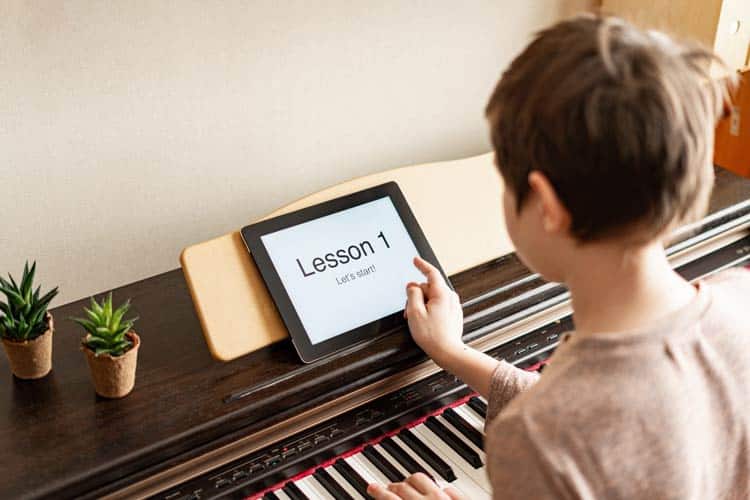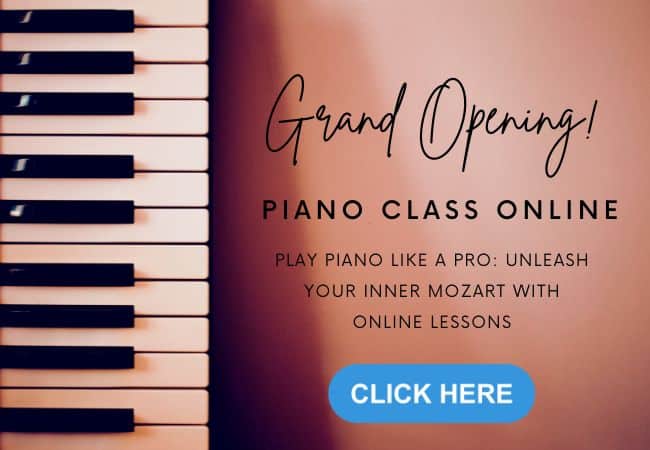how to learn piano by yourself! Are you captivated by the mesmerizing melodies of the piano? Do you dream of being able to play your favorite songs with grace and finesse? Learning piano by yourself is not only achievable but also immensely rewarding. In this article, we will embark on a convincing journey to guide you through the process of becoming a self-taught pianist like no other.

how to learn piano by yourself
The Allure of Mastering the Piano
The piano, with its grandeur and versatility, has long been a symbol of musical excellence. The mere thought of sitting in front of those black and white keys can be exhilarating. It’s an instrument that has the power to evoke emotions and create a connection between the player and the music.
Common Misconceptions about Self-Learning
Before we dive into the nitty-gritty of self-learning, let’s debunk some common myths. You don’t need to be a prodigy or have prior musical experience to learn the piano by yourself. With dedication, patience, and the right approach, you can unlock your inner pianist.
Setting the Stage
Choosing the Right Piano or Keyboard
Your journey begins with the instrument itself. Whether you opt for an acoustic piano or a digital keyboard, selecting the right one is crucial. Consider factors like space, budget, and your long-term commitment.
Creating a Conducive Practice Environment
Transform your practice space into a sanctuary of creativity. A clutter-free, well-lit room with a comfortable chair and good posture is the canvas on which you’ll paint your musical masterpiece.
The Power of Online Resources
Exploring Online Piano Courses and Tutorials
The internet is a treasure trove of piano resources. Explore online courses, video tutorials, and websites dedicated to piano enthusiasts. You’ll find lessons ranging from beginner to advanced levels.
The Benefits of Interactive Piano Learning Apps
Embrace technology’s role in your learning journey. Interactive apps offer gamified lessons, progress tracking, and real-time feedback. They turn practice into an engaging adventure.
Building Your Foundation
Understanding Piano Notes and Scales
Before you can play a symphony, you must understand the language of music. Learn to read notes, grasp musical notation, and familiarize yourself with scales and chords.
Mastering Proper Hand Positioning and Posture
Your hands are your primary tools. Cultivate proper hand positioning and posture from the start. It’s the foundation of graceful and injury-free playing.
The Art of Self-Discipline
Creating a Structured Practice Schedule
Consistency is the key to progress. Craft a practice schedule that suits your daily routine. Even short, focused sessions can yield significant results over time.
Overcoming Practice Hurdles and Frustrations
Every musician faces challenges. Don’t be discouraged by missed notes or slow progress. Embrace these moments as opportunities to grow and refine your skills.
Playing Your First Song
Simplified Sheet Music for Beginners
Your heart is set on playing that first song. Start with simplified sheet music designed for beginners. These arrangements are tailored to ease you into the world of piano music.
Tips for Tackling Your First Piece
Approach your first song with enthusiasm. Break it down into manageable sections, practice slowly, and celebrate small victories along the way. Your determination will pay off.
Expanding Your Repertoire
Exploring Different Music Genres
The piano’s versatility knows no bounds. Explore various genres, from classical to jazz, pop to blues. Each genre offers a unique set of challenges and opportunities for growth.
Gradually Increasing the Complexity of Songs
As your skills develop, challenge yourself with progressively complex pieces. Each new song you conquer adds another layer to your musical prowess.
The Importance of Technique
Finger Strength and Dexterity Exercises
Dedicate time to finger exercises that improve strength and dexterity. These exercises lay the groundwork for fluid and expressive playing.
Achieving Fluidity in Your Playing
Smooth transitions, delicate phrasing, and nuanced dynamics are the hallmarks of a proficient pianist. Focus on refining your technique to elevate your playing.
Finding Inspiration and Motivation
Setting Achievable Goals
Set specific, achievable goals for your piano journey. Whether it’s mastering a particular piece or conquering a challenging technique, goals give you direction and motivation.
Staying Motivated Through the Journey
Maintaining enthusiasm throughout your journey is crucial. Surround yourself with music, seek inspiration from accomplished pianists, and remind yourself why you embarked on this path.
Recording Your Progress
The Benefits of Recording and Self-Assessment
Recording your practice sessions and performances serves as a valuable tool. It allows you to track your progress, identify areas for improvement, and witness your growth.
Tracking Your Improvements Over Time
Review your recordings periodically to witness your evolution as a pianist. Celebrate your achievements and use the recordings as a source of inspiration for further development.
Conclusion how to learn piano by yourself
The journey of learning piano by yourself is a fulfilling one. It’s a testament to your dedication, passion, and love for music. As you progress, you’ll discover the magic of creating melodies and expressing emotions through the keys. Embrace the challenges, relish the small victories, and let your inner pianist flourish.
FAQs
1. Can I learn piano without any prior musical experience? Absolutely! Learning piano by yourself doesn’t require prior experience. With dedication and the right resources, anyone can start their musical journey.
2. How long does it take to become proficient at playing the piano on your own? The timeline varies for each individual. It depends on your practice routine, goals, and the complexity of the music you want to play. Consistent practice is key to progress.
3. Are there any recommended online piano courses for beginners? Yes, there are many excellent online piano courses tailored for beginners. Some popular options include Udemy, Simply Piano, and Playground Sessions.
4. What’s the best way to overcome frustration while learning the piano? Frustration is normal, but it’s essential to stay patient and persistent. Take breaks when needed, focus on small achievements, and remember why you started this journey.
5. How can I stay motivated to practice regularly? Setting achievable goals, seeking inspiration from accomplished pianists, and incorporating music into your daily life can help you stay motivated on your piano-learning journey.
